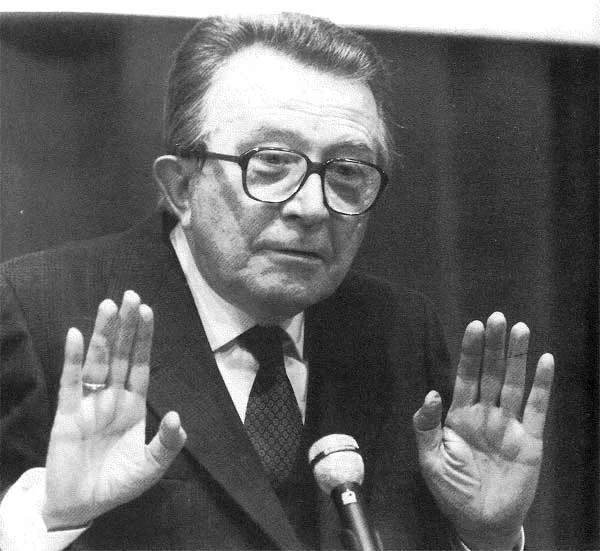There was once a country where everyone was a thief.
At night each inhabitant went out armed with a crowbar and a lantern, and broke into a neighbour’s house. On returning at dawn, loaded down with booty, he would find that his own house had been burgled as well.
And so everyone lived in harmony, and no one was badly off – one person robbed another, and that one robbed the next, and so it went on until you reached the last person, who was robbing the first. In this country, business was synonymous with fraud, whether you were buying or selling. The government was a criminal organization set up to steal from the people, while the people spent all their time cheating the government. So life went on its untroubled course, and the inhabitants were neither rich nor poor.
And then one day – nobody knows how – an honest man appeared. At night, instead of going out with his bag and lantern to steal, he stayed at home, smoking and reading novels. And when thieves turned up they saw the light on in his house and so went away again.
This state of affairs didn’t last. The honest man was told that it was all very well for him to live a life of ease, but he had no right to prevent others from working. For every night he spent at home, there was a family who went without food.
The honest man could offer no defence. And so he too started staying out every night until dawn, but he couldn’t bring himself to steal. He was honest, and that was that. He would go as far as the bridge and watch the water flow under it. Then he would go home to find that his house had been burgled.

In less than a week, the honest man found himself with no money and no food in a house which had been stripped of everything. But he had only himself to blame. The problem was his honesty: it had thrown the whole system out of kilter. He let himself be robbed without robbing anyone in his turn, so there was always someone who got home at dawn to find his house intact – the house the honest man should have cleaned out the night before. Soon, of course, the ones whose houses had not been burgled found that they were richer than the others, and so they didn’t want to steal any more, whereas those who came to burgle the honest man’s house went away empty-handed, and so became poor.
Meanwhile, those who had become rich got into the habit of joining the honest man on the bridge and watching the water flow under it. This only added to the confusion, since it led to more people becoming rich and a lot of others becoming poor.
Now the rich people saw that if they spent their nights standing on the bridge they’d soon become poor. And they thought, ‘Why not pay some of the poor people to go and steal for us?’ Contracts were drawn up, salaries and percentages were agreed (with a lot of double-dealing on both sides: the people were still thieves). But the end result was that the rich became richer and the poor became poorer.
Some of the rich people were so rich that they no longer needed to steal or to pay others to steal for them. But if they stopped stealing they would soon become poor: the poor people would see to that. So they paid the poorest of the poor to protect their property from the other poor people. Thus a police force was set up, and prisons were established.
So it was that, only a few years after the arrival of the honest man, nobody talked about stealing or being robbed any more, but only about how rich or poor they were. They were still a bunch of thieves, though.
There was only ever that one honest man, and he soon died of starvation.
Photograph © Popperfoto







